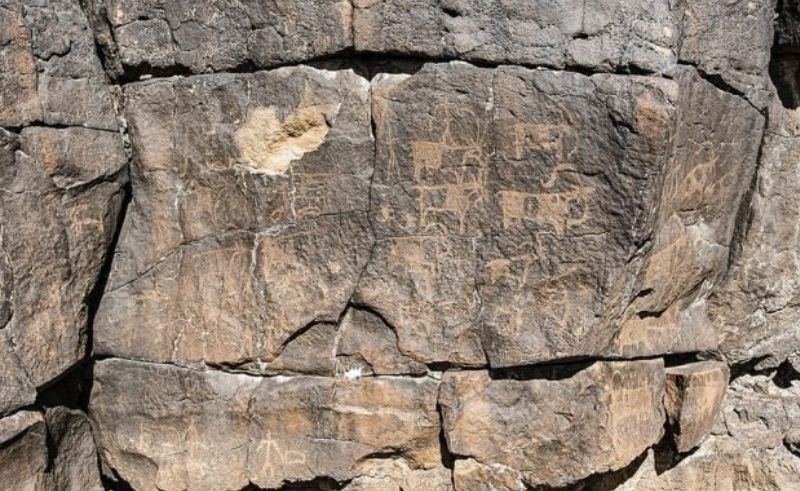Rare Ancient Rock Art Discovered in Saudi Arabian Lava Tube
The ancient rock art reveals documented evidence that people occupied these lava tubes.

Archeologists in Saudi Arabia have discovered rare ancient rock art at the entrance to a remote desert lava tube - a cave formed by lava. The rock art was found near Umm Jirsan, located in the volcanic field of Harrat Khaybar, around 125 km north of Madinah. The findings of the archaeologists proved at least 7,000 years of repeated human occupation.
While surveying the collapsed entrance to a lava tube 1.3km east of Umm Jirsan, the researchers discovered sixteen panels of art. These are the only known examples of rock art in the area, and show sheep and goats, which are rare in northern Arabian rock art, as well as long-horned cattle, possible ibex, and human stick figures with tools on their belts. The researchers also found the skeletal remains of domesticated sheep and goats among the artefacts.
Organic remains rarely survive in Saudi Arabia’s harsh desert climate, making it difficult to find evidence for early human activity. This led the team to investigate caves and lava tubes to see if anything had been preserved in these underground monuments.
Based on the team’s research, it appears that people did not live permanently in the Umm Jirsan lava tube, but used it as a place to rest while travelling between oases with their livestock. These pastoralists may also have hunted gazelle and ibex, perhaps using the lava tube as a water reservoir.
- Previous Article Italian-Palestinian Duo No Input Debuts Eponymous Electro EP
- Next Article Travel Across History on Egypt's Most Iconic Bridges
Trending This Week
-
Jan 31, 2026



























